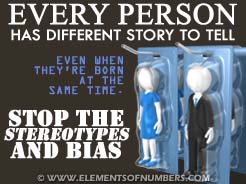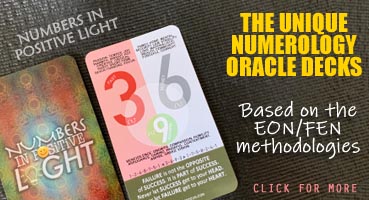FDW and Maid Selection

How frequently do you find your current job is not what you’re qualified for, or it doesn’t fit into your career aspirations? Oftentimes, we read about job mismatched happening in many companies around the world. Imagine employing a quiet and pessimistic person to be an outdoor sales person, or a hyperactive and talkative person to perform administrative or librarian roles. Sure, the person could perform their responsibilities well, but they might get bored easily or quickly, and feeling constrained. In some cases, the passion to work (in their current job) would come to a standstill, and they might ask questions like “where do I go from here?” and “should I, or shouldn’t I leave the company?”
 Lionel recently texted me and asked about the relationship compatibilities between his wife and potential maid. The basic approach of determining the suitability of job matching for an office worker is similar to production workers, and even for maids (they’re called foreign domestic worker (FDW) in Singapore). However, as each job requires certain extra skill sets and behavioural attributes, the criterion for FDW is different from office or production workers. In Singapore, many households employ FDW to help take care of young kids or aged parents, as well as doing domestic household chores. Just like getting a good social worker, there is the need to induce an extra factor to determine if the FDW is likely a responsible or irresponsible person.
Lionel recently texted me and asked about the relationship compatibilities between his wife and potential maid. The basic approach of determining the suitability of job matching for an office worker is similar to production workers, and even for maids (they’re called foreign domestic worker (FDW) in Singapore). However, as each job requires certain extra skill sets and behavioural attributes, the criterion for FDW is different from office or production workers. In Singapore, many households employ FDW to help take care of young kids or aged parents, as well as doing domestic household chores. Just like getting a good social worker, there is the need to induce an extra factor to determine if the FDW is likely a responsible or irresponsible person.
 I told Lionel what this additional factor is, and hope he could use this knowledge in his selection to choose an FDW. I also shared the extra factor to the recent FEN WORKSHOP class as well. Essentially, it all depends on the roles and responsibilities of the FDW – their primary and secondary roles. For example, if you employ an FDW to take care of babies and young children, then it’s important they either had prior experience taking good care of a young child, similar to a mother taking care of her child. It’s also essential that the FDW has been pre-trained in the proper procedures, including the safety and health aspects. If the FDW is employed to take care of aging or elder persons, then they must acquire the skill sets to take care of elderly and senior persons, including knowing the food and diet preference. Most FDW has secondary roles, like doing household chores, buying groceries, cooking, and keeping the house clean and tidy.
I told Lionel what this additional factor is, and hope he could use this knowledge in his selection to choose an FDW. I also shared the extra factor to the recent FEN WORKSHOP class as well. Essentially, it all depends on the roles and responsibilities of the FDW – their primary and secondary roles. For example, if you employ an FDW to take care of babies and young children, then it’s important they either had prior experience taking good care of a young child, similar to a mother taking care of her child. It’s also essential that the FDW has been pre-trained in the proper procedures, including the safety and health aspects. If the FDW is employed to take care of aging or elder persons, then they must acquire the skill sets to take care of elderly and senior persons, including knowing the food and diet preference. Most FDW has secondary roles, like doing household chores, buying groceries, cooking, and keeping the house clean and tidy.
 Now, back to my observation and analysis of the compatibility chart. For easier recognition, let’s named Lionel’s wife as Lucy, and their potential domestic worker as Pam. There are just too many 9s in the chart, and it could do more damage than good. As explained in previous articles on charts with multiple 9s, an individual could become a victim of their own success. In the case of Lucy and Pam, it could create emotional tension, false job scope on Pam, and unrealistic expectations when both are together. The ideal state of affairs is for Pam to focus on her roles and responsibilities at work, and for Lucy to provide a homely, respectful, and cordial relationship with Pam, including treating her like an in-house employee and NOT a 24/7 worker or slave.
Now, back to my observation and analysis of the compatibility chart. For easier recognition, let’s named Lionel’s wife as Lucy, and their potential domestic worker as Pam. There are just too many 9s in the chart, and it could do more damage than good. As explained in previous articles on charts with multiple 9s, an individual could become a victim of their own success. In the case of Lucy and Pam, it could create emotional tension, false job scope on Pam, and unrealistic expectations when both are together. The ideal state of affairs is for Pam to focus on her roles and responsibilities at work, and for Lucy to provide a homely, respectful, and cordial relationship with Pam, including treating her like an in-house employee and NOT a 24/7 worker or slave.
In the Elements of Numbers (EON) principles, we could easily associate the number 9 as a tree. And when there are so many 9s on a chart, we could imagine them as thick woods in the forest, with each tree competing against one another to be the tallest tree, to get the best sunlight possible. Because of different expectations, we could see some trees with extended branches preventing, or blocking other trees from turning upwards, or branches entangled with other trees. The frequent “disagreements or entanglements” and the way the branches grow sideways to block others, reminded me of an analogy of some IT or mobile phone manufacturers. They’d outwit their competitors with over-hyped products, sue other companies with unrealistic claims and damages, or challenge them in court until that company goes bust. It doesn’t matter if they owned the patents or not. In short, it portrays the mindset of “If I can’t win you, I will make sure you lose even more” or “We have the money and resources, let’s wait and see who can survive longer.” Sometimes, they might resort to distort the facts, populating negative sentiments, and quietly invoking half-truths.
 To a certain extent, that’s what might take place when Lucy and Pam are together. While there could be wide smiling facial expressions when they see each other, the back of their minds could lie the cautious, scheming, and competitive thoughts. In some ways, Lucy might get frustrated over the disagreements. She might feel irritated with Pam’s regular gossiping, bossiness, or badmouthing others, including on her (Lucy’s) family members.
To a certain extent, that’s what might take place when Lucy and Pam are together. While there could be wide smiling facial expressions when they see each other, the back of their minds could lie the cautious, scheming, and competitive thoughts. In some ways, Lucy might get frustrated over the disagreements. She might feel irritated with Pam’s regular gossiping, bossiness, or badmouthing others, including on her (Lucy’s) family members.
I have briefly described some basic steps on interpreting a relationship chart, to look at employee selection. In today’s article, it’s briefly about finding a maid or FDW. In practice, this is simply one of the many layers of checking on compatibilities. It is not conclusive unless Lucy is the lone occupant in the house. You need to plot various charts and check out on Pam’s relationship with every member of the household, and the person she’d be working closely with, like the child, grandparent, or a sickly person.
In any case, you’ll learn more in my FEN (Five Elements Numerology) WORKSHOP and/or NSQ Profiling class, and I’ll also share certain key attributes needed for FDW selections too…
Lionel subsequently messaged that he and his wife have decided to look for more choices before making a decision.
Regards, Ron WZ Sun














